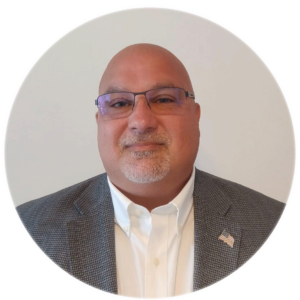Managed care fraud is an escalating issue in healthcare, affecting everything from large hospitals to small clinics and even private doctor’s offices. But even with its widespread reach, it often goes unnoticed by most healthcare professionals.
Understanding and combating this type of healthcare fraud is essential for preserving healthcare integrity and ensuring resources are used for quality patient care. In this article, we explain managed care fraud, highlight different fraudulent practices, share real-world case studies, discuss its impact, and offer strategies for healthcare professionals like you to fight back.
What is Managed Care Fraud?
Managed care insurance fraud involves deceptive practices by managed care insurance companies that lead to unauthorized insurance payments or reimbursements. Some common types of managed care fraud include billing for services not rendered, falsifying patient records, or manipulating enrollment data.
A brief history of managed care shows that while this model was created to optimize healthcare delivery and reduce costs, it has also opened new avenues for fraudulent activities. It’s important to recognize that managed care insurance fraud is not exclusive to large organizations. It is pervasive even in small clinics, mid-level offices, and private practices and nursing homes. It’s one of the biggest healthcare fraud schemes that affects almost every corner of the healthcare industry.
Types of Managed Care Fraud
Understanding the types of managed care fraud is crucial for healthcare whistleblowers, as these activities can have severe implications. Fraud can range from billing for unrendered services to complex schemes involving falsified records. By learning about different forms of fraud, healthcare workers can better identify and prevent these illegal practices, protecting their patients and the integrity of the healthcare system.
- Risk Adjustment Fraud (RAF). This illegal activity occurs when healthcare providers leave outdated diagnoses on patient records to increase reimbursements. This malpractice significantly impacts Medicare and Medicaid allocations, diverting funds from legitimate needs to fraudulent claims.
- Upcoding. This fraud scheme involves billing for a more severe or complex diagnosis than the one actually given to a patient. Examples include categorizing controlled diabetes as uncontrolled. The role of outdated diagnoses is significant in upcoding, as it maximizes reimbursements based on the highest possible severity of a condition.
- Medical Loss Ratio (MLR) Fraud. This form of healthcare fraud occurs when insurers misrepresent funds to meet the required ratios, effectively concealing their excessive administrative costs and increasing profit margins. The MLR is the percentage of premium revenue that an insurer spends on clinical services and quality improvements.
- Healthcare Effectiveness Data & Information Set (HEDIS) Fraud. HEDIS is a tool used by health plans to measure performance on important dimensions of care and service. Fraud in this area often involves falsifying a higher rating so that plans can receive higher Quality Bonus Payments (QBP) to which they are not entitled.
- Adverse Selection. This fraud scheme occurs when operators of managed care plans attempt to mitigate risk by selectively enrolling healthier individuals into their plans while avoiding the enrollment of less healthy individuals who may require more extensive and costly care. This practice skews the risk pool, undermining the intention of managed care and leading to disparities in healthcare access and outcomes.
Case Studies Involving Managed Care Fraud
- The Cigna Group. Cigna agreed to a $172 million settlement for allegedly inflating its Medicare Advantage Plan payments. This involved submitting inaccurate diagnosis codes and failing to correct them in order to boost reimbursements. The U.S. claimed Cigna’s “chart review” program submitted additional codes without proper diagnostic confirmation, which constituted fraud.
- Martin’s Point Health Care. Martin’s Point Health Care Inc. agreed to pay $22.5 million to settle claims that it submitted unsupported diagnosis codes for its Medicare Advantage Plan enrollees, aiming to unjustly increase Medicare reimbursements.
These cases highlight the damaging effects of managed care fraud and demonstrate the necessity of strict regulatory oversight.
The Impact of Managed Care Fraud
Managed care fraud drains financial resources from healthcare facilities of all sizes and erodes the quality of patient care. Understanding its impact is crucial for healthcare professionals to rally against these illegal practices.
Managed care fraud has the biggest impact on:
- Taxpayer Funds. Managed care fraud exploits taxpayer money, which funds government healthcare programs like Medicare and Medicaid. These fraudulent activities contribute to rising healthcare costs and higher taxes, burdening the entire population.
- Healthcare Quality & Cost. Fraudulent practices divert funds away from legitimate healthcare services, reducing the quality of patient care. Consequently, the price of healthcare services increases, making it less accessible to those who need it the most. Compromised patient care and outcomes are a direct result of this misallocation of resources.
How to Report Managed Care Fraud
If you believe you’ve witnessed managed care insurance fraud in your place of employment, consider blowing the whistle. Whistleblowers play a crucial role in exposing managed care fraud. They bring fraudulent activities to light, enabling authorities to take corrective action. Plus, legal protections and incentives for whistleblowers encourage more individuals to step forward and report fraud.
Here is what you can expect throughout the process:
- Get Expert Guidance from a Whistleblower Attorney. Reach out to our team of whistleblower experts for legal advice that can help you navigate the complexities of reporting fraud.
- Present your Evidence. Gather and organize all pertinent information to build a strong case. Your whistleblower attorney will help you determine which documents to look for.
- File a Claim. Officially report the fraudulent activity to the relevant authorities with the help of your whistleblower attorney.
- The Government Investigation. Authorities will examine the evidence and determine its validity.
- The Government Ruling. Based on the investigation, a decision will be made regarding the fraudulent activity.
- Earn a Reward. If the case is successful, you could earn a reward of up to 30% of any recovered funds from a settlement or judgment as an incentive for reporting fraud.
Managed care fraud is widespread and has far-reaching impacts on the healthcare system and society at large. Healthcare professionals must remain vigilant and report any suspected fraudulent activities to a trusted whistleblower law firm.
By doing so, you not only help safeguard taxpayer funds but also ensure better quality and cost of healthcare services. To learn more and join the fight against managed care fraud, contact us for a free and confidential consultation. As a contingency law firm, we don’t get paid unless you do. That’s why we fight to get you the biggest financial reward for your bravery.

authored by Christopher J. Piacentile
Director of Investigations DJO Whistleblower Law Group


